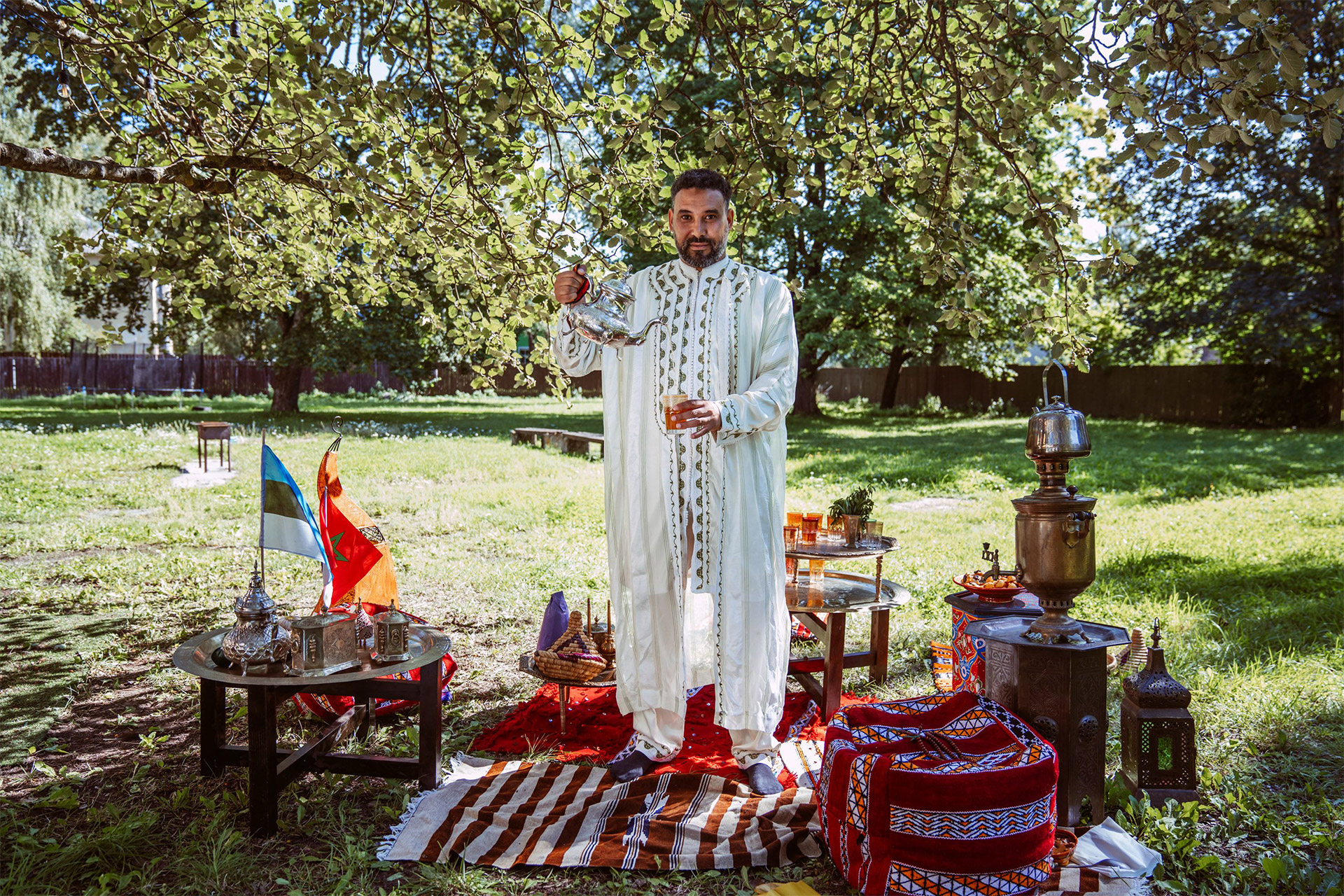Badreddine Lamdaghri Alaoui hails from Morocco and has lived in Estonia for the past 13 years. At the moment he is an instructor at taekwondo club in Saue. He's also the president of the Moroccan cultural society, and in this role has been working to introduce Estonians to his culture as well as to keep in touch with the Moroccan community. "Representing Moroccans in a good light means contributing to the society in which you live," he explains.
Though Badr was used to the warmth and sociability of his homeland, he was immediately seduced by Estonia. "I really like the nature in Estonia, that we have so many forests, as well as the combination of the archaic and modern. For example, when you go into the Tallinn Old Town, you can find this mix of the modern and traditional," he says.
The cultural differences were evident right from the start, for example in the cuisine. "When I came to Estonia, I was surprised that the Estonians only used salt and pepper as spices. That was a big surprise for me, I wasn't used to it," Badr admits. Moroccans use a lot more spices to add depth and flavor to their dishes. At the same time, he's noticed that times are changing. "Now I can see that society is changing and people are more open to other national cuisines, so things are evolving," he says positively.
One of the most remarkable elements that has struck Badr about Estonia is the Estonians' respect for customs. Badr has also noticed how much people here value their privacy and personal space.
Badr was also surprised by Estonia's long white nights in summer. "It was unbelievable that the sun just doesn't set in summer, and the days are so long. I saw how much the Estonians enjoyed these days – it was very exciting and positive." He also appreciated how locals make the most of these days by having parties and festivals, or by hiking and swimming.
But Moroccan culture remains in his heart and he continues to pass this love on through his work in the community. "Estonians learn about Moroccan culture through events, festivals, workshops, as well as school visits, where they can learn about our history, national dress, and Moroccan cuisine," says Badr.
"In our culture, people are more social, and there are always get-togethers – families gather together and we like to spend time together," says Badr. He adds that unannounced visits are common in Moroccan culture and welcome. "Then there's an opportunity to make tea, as we are doing now, and enjoy the tea and conversation."
For Badr, everyday communication with one's family is very important, even when relatives live far away. "I communicate with my family every day, because it's really important. No matter that Estonia and Morocco are very far apart. It's always good to get updates on how they're doing," he says.
While Badr has adapted to the new and different flavors in Estonia, he does miss Moroccan cuisine. "Estonia doesn't have Moroccan cuisine. We love Moroccan cuisine. It's rich, among the world's best." He also misses the bustle of the Moroccan markets, where one can enjoy the fragrant smell of spices and live music. "When you go to a Moroccan market, you can just sense that it’s alive. People go there to do their everyday things, but life is just bustling all around them."
Badr has adopted a few local traditions and customs in Estonia. "One thing I've adopted in Estonia is punctuality. Time is very important. When you say you'll be there at nine, then that means exactly nine o'clock," he explains. He's also taken a liking to Estonian foods like kama and sprats. "I discovered sprats during the national holidays. I know it's a national dish and it reminds me of Moroccan anchovies. I like to eat them with black bread."
For Badr, introducing Estonians to Moroccan culture and raising their awareness of Morocco has become a passion. He underscores how important it is to integrate into society and to respect local customs. "You can integrate into a society by respecting its laws and customs and by contributing to it, too."

